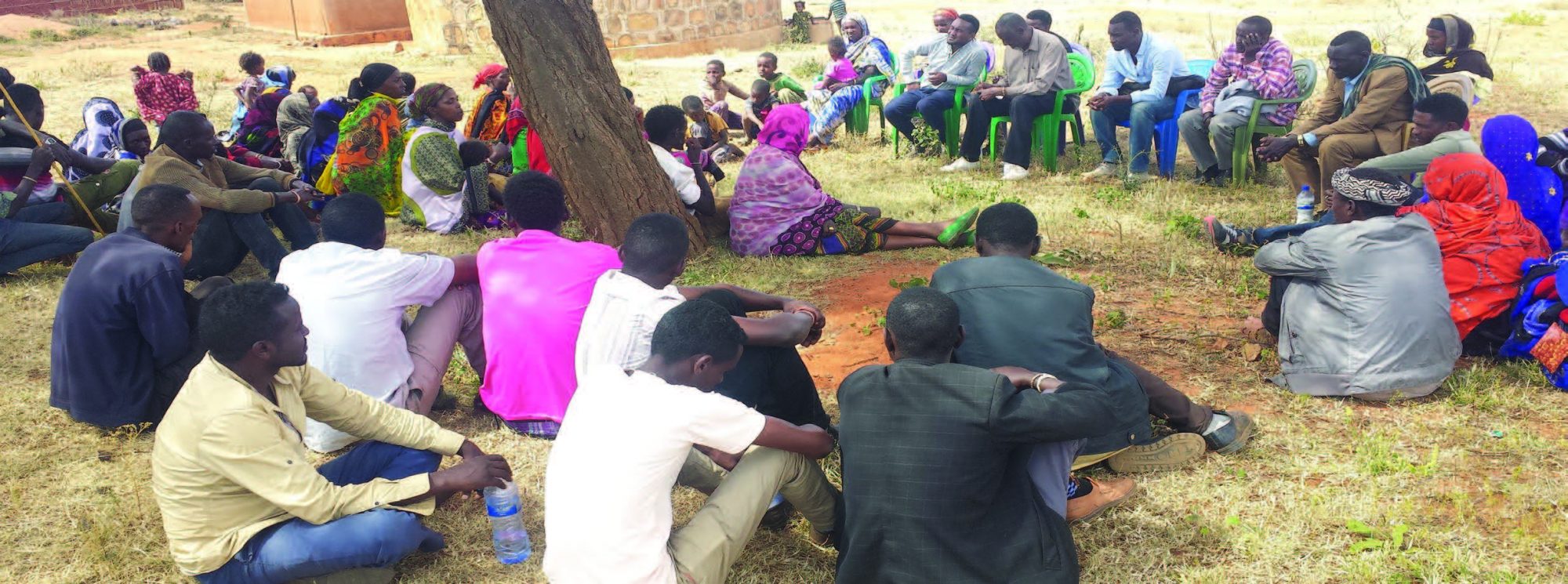Improving Adaptive Capacity to Drought
Mr. Kararsa Dida, 55, is a pastoralist living at Kancharo kebele, Dillo woreda, Ethiopia. He has 9 children and depends on livestock production, which is decreasing due to environmental effects, including degradation of grazing land and recurrent drought.
Due to the lack of scientific early warning information, Kararsa used his own traditional weather forecasting to support his livestock production and manage his scarce food for his family. However, he has been facing severe problems trying to cope with the rapidly changing climatic conditions.
To bridge such information gaps, CARE has introduced PSP (Participatory Scenario Planning) approach under RESET II (Resilience Building and Creation of Economic Opportunities in Ethiopia) project. This is an approach whereby traditional forecasters and meteorologists come together, discuss possible weather scenarios, produce and disseminate PSP advisories, advising communities on what to do under each of the identified scenarios. Accordingly, the project produces and disseminates PSP advisories for two rainy seasons per year.
Kararsa is one of the community members that receives PSP advisories from the project. Witnessing the benefit of the advisories, Kararsa said the PSP workshops had greatly helped him by providing vital and trustable rainfall forecast to make informed decisions. He added that unlike previous times, many of his neighbors, including him, currently possess at least one or two stocks of hay at their homestead to feed their livestock during drought. On top of that, they have harvested sufficient water at all ponds by mobilizing the community to maintain all ponds to hold water. He expects this to save a large number of livestock that might have otherwise been affected by drought due to unpreparedness.
As a traditional forecaster, Kararsa is also working to provide early warning information and mobilize communities, as agreed on during PSP sessions. For example, after participating in the PSP workshop, he went back to his kebele and provided the weather forecast information for the last long rainy season (called Ganna) to the local communities and mobilized them to prepare themselves for the expected scenarios. As a result, more than 195 households adopted crop farming on the area which was not possible before due to aridity and low rainfall. Almost all of them have got some amount of yield and used it for household consumption. Out of the beneficiaries, 20 were widows or women-headed households.
